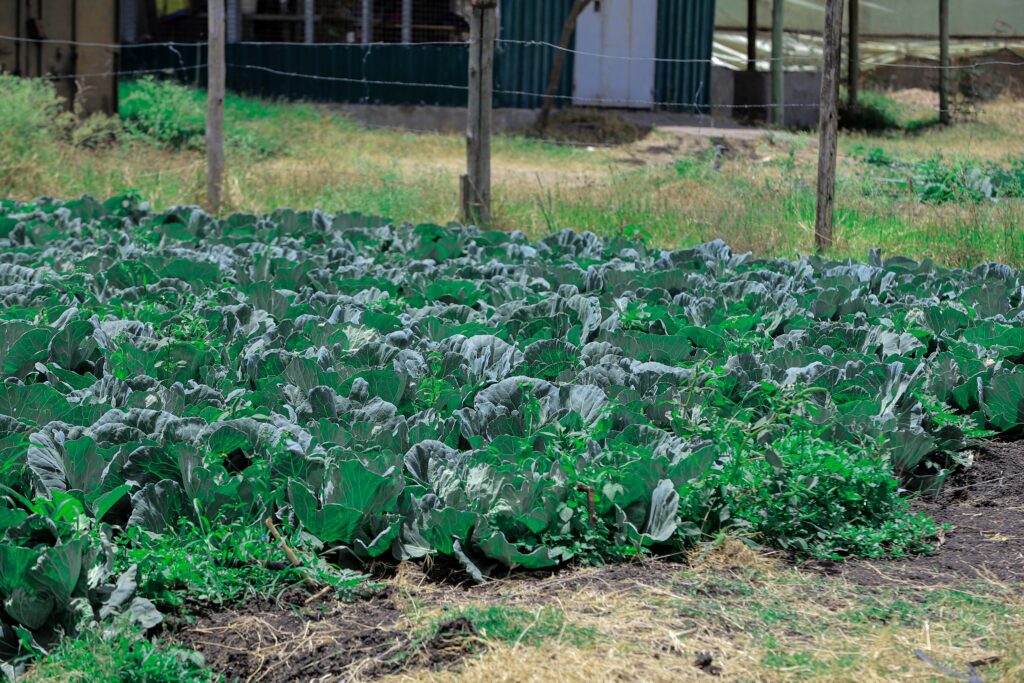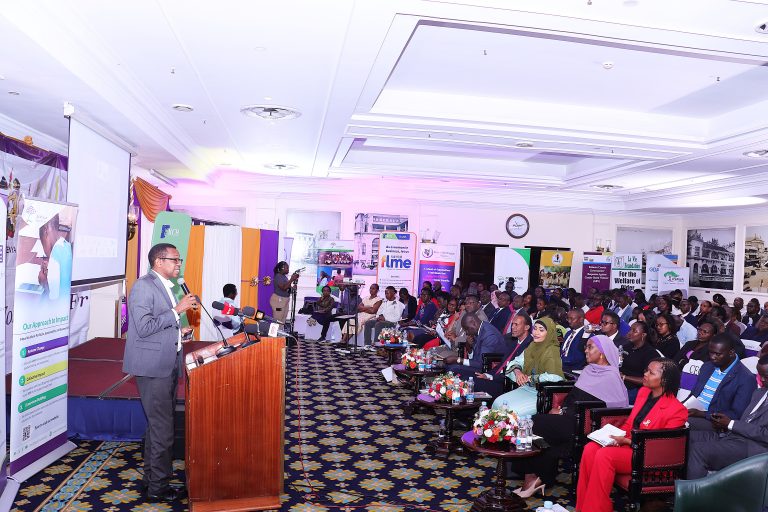As we embarked on our journey through the savannah landscapes of Kajiado County, Kenya, we were filled with anticipation to witness the transformative impact of the Green Business Project. After driving through the dusty roads for 29 kilometres, we finally arrived at a small town that was the epicentre of this remarkable initiative. As we stepped out of the car, we were greeted by the warm and vibrant youth beneficiaries of the project, including Francis Kateela, Milia Orumoi, and their friend. They shared their story of transformation with us, narrating how they underwent a three-month training at the Latia Agribusiness Solutions Training Center in partnership with Welt Hunger Hilfe, Zizi Afrique Foundation, and Anglican Development Society. This was followed by three months of attachment at Birika farm for Milia Orumoi and at Ngatataek farm for Francis Kateela to gain valuable hands-on experience.
What struck me the most was the expansive savannah landscape that stretched out before us, with golden grass swaying gently in the breeze and majestic anthills dotting the horizon. It reminded me of the importance of preserving natural beauty and the need to empower communities to achieve progress and growth. As we toured the small farm, we were amazed by the thriving tomato farming enterprise that the youth had established. Each crate of tomatoes sold for a staggering 750 shillings, generating significant income for them. They had also employed their neighbours, paying them a standard wage of 150 shillings for each crate of tomatoes harvested. It was inspiring to see how this initiative was unlocking opportunities for youth in the area and promoting sustainable practices.

As I walked through the 2-acre leased farm, I could not help but notice the rows and rows of tomato plants intertwined with a few cabbages, stretching out towards the sky. The farmers’ faces radiated with pride as they shared stories of their hard work, dedication, and the knowledge they had acquired along the way. Witnessing firsthand how a small piece of land had been transformed into a thriving source of sustenance and prosperity was truly inspiring. What utterly amazed me was the emphasis on sustainability. Francis and his companions have adopted eco-friendly farming practices that minimize their environmental impact. They utilize natural pest control methods, evidenced by various scarecrows, although unfortunately, they could not deter every bird. They also have a gravity-propelled watering system in place, drawing water from a nearby stream. They are not just reaping profits but also nurturing the land that has given them so much. This harmonious relationship between the farmers and the environment highlighted the potential for responsible and profitable ventures through green skills value chain training.
As the day drew to a close, we were fortunate enough to witness firsthand the harvesting of tomatoes and cabbages. It was a pleasure to carry our small harvest home, and it made me reflect on the journey that had led me to this point. The story that unfolded before me was one of resilience and determination, as the people around me had worked hard to uplift themselves by turning adversity into opportunity. It was truly a testament to the human spirit. I am filled with hope that such initiatives will continue to bridge the gap between remote communities and the rest of the world. The green business project not only demonstrated the potential of sustainable entrepreneurship, but also proved that with the right support and determination, transformational change is possible, even in the most unlikely of places.
As ZAF, we are proud to have been part of this project and it is always refreshing to see lives being transformed and hearing stories of change in the communities even if it is just one person at a time.


